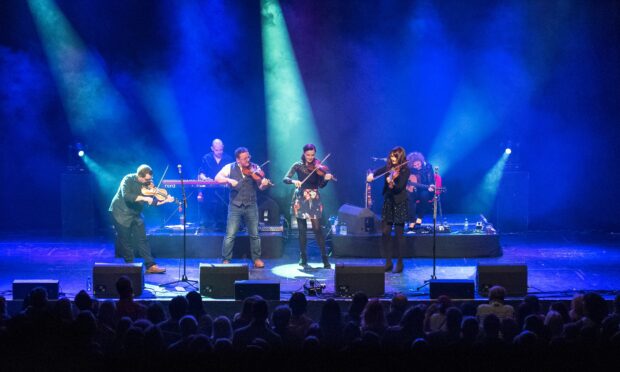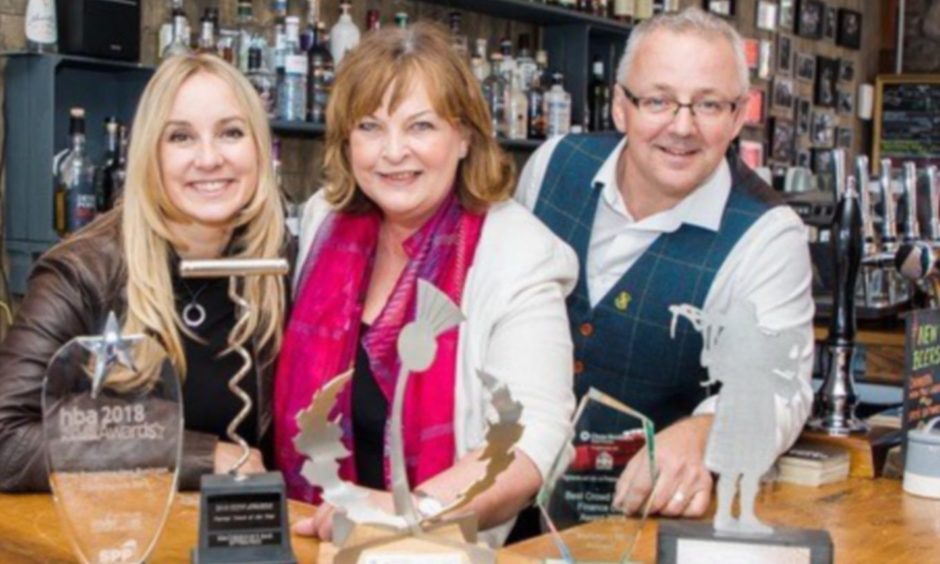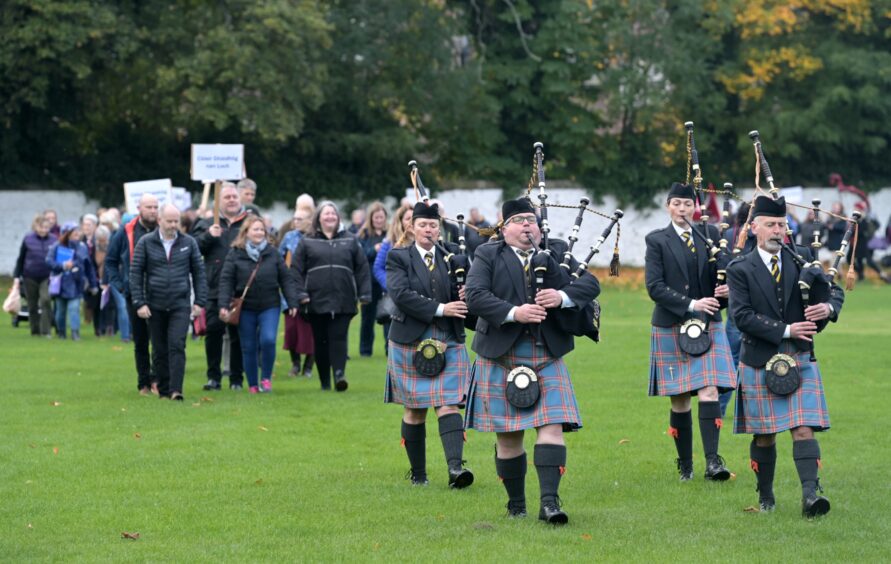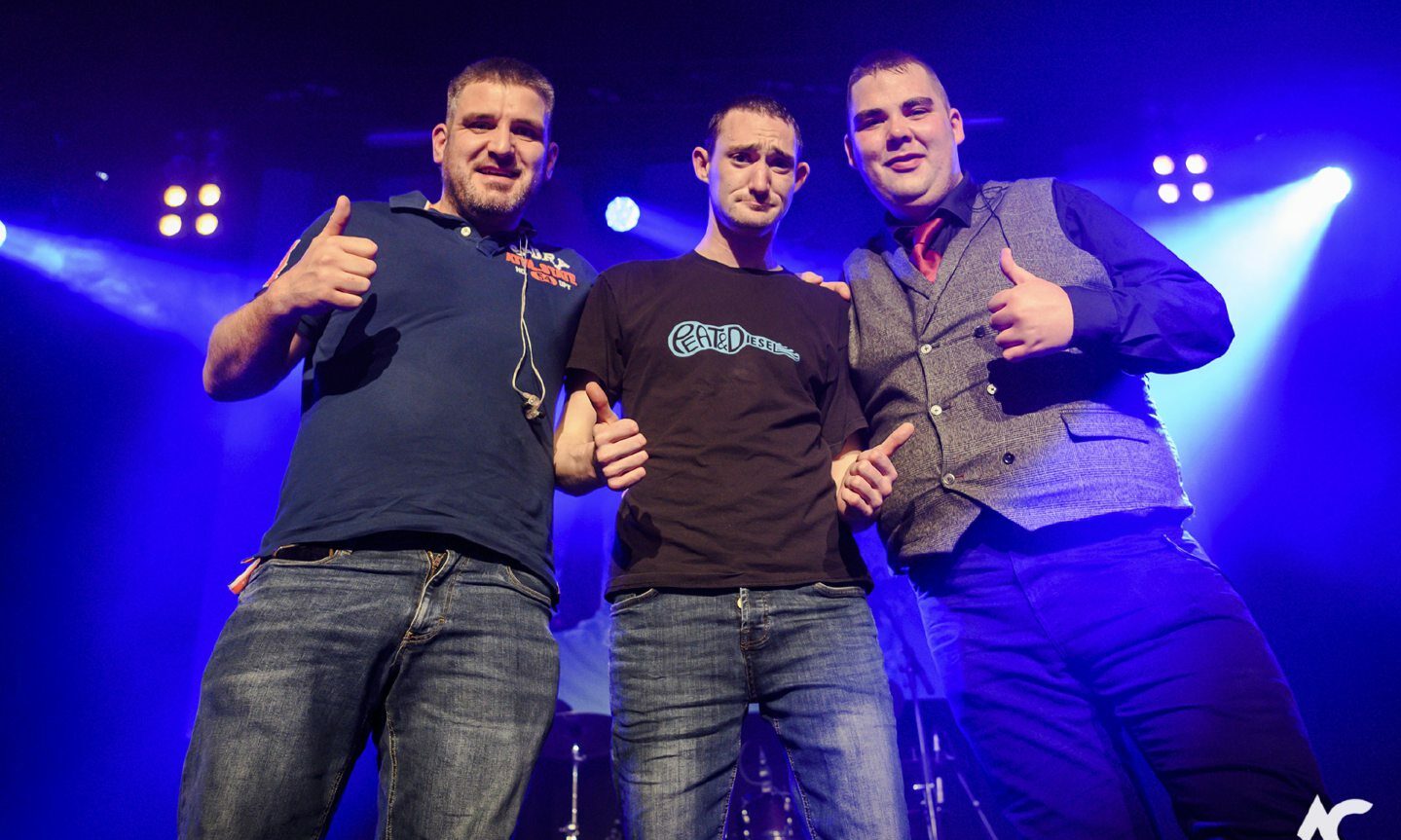Bruce MacGregor loves the atmosphere at his eponymous award-winning pub and folk music venue in Inverness.
As the founding member of Blazin’ Fiddles more than 25 years ago, he and his eclectic band members have whipped up a storm on their myriad concert tours and proved the power of bringing new vigour and va va voom to traditional Scottish music.
But one of the most significant aspects of the group’s development has been the realisation that a new generation is revelling in the songs and the dances and either making their own sounds or lapping up the whole ceilidh vibe.
The Sunday sessions at MacGregors in the Highland capital have become a focal point for people of all ages and backgrounds to join together in creating a joyful noise.
‘It was incredible to see’
As Bruce said: “The great thing is they are held in the afternoon, so kids come in and join us. There was one week we had one of them heading up to Plockton school (on the trad course) pop in and blow everyone away with his musical prowess on the piano.
“He had to leave to get his bus and was replaced by a nine-year-old boy from Prince Edward Island [in Canada] who sat down at the keys and took it to another level.
“Another time, we had a young piper in, fresh from winning a medal at the Nairn Games. He was sitting beside Mike Katz from the Battlefield Band and the two of them played and chatted pipes and tunes for hours – it was incredible to see.”
This isn’t just an isolated success story. On the contrary, new research released by VisitScotland has revealed the growing popularity of Scottish traditional music, finding that over a third of Scots – 34% – have started listening to it more often in the past year.
And it’s not just about hearing it on Outlander or Shetland, with 53% of the 1,000 respondents saying they have noticed the genre within the media, whether in TV, movies or commercials, and another 35% declaring they have been exposed to more Scottish traditional music than ever before – and have positive feelings about it.
Support from millennials
A significant 61% of Scots involved in the survey expressed an interest in supporting efforts to promote and preserve trad music in the future. And, importantly in looking at the long-term picture, the enthusiasm is notably higher among the younger generation, with millennials most likely to support such initiatives.
With more than 20 trad festivals taking place this year, including Celtic Connections, Orkney Folk Festival, Edinburgh Tradfest, Shetland Folk Festival, Stonehaven Folk Festival, Ceolas and HebCelt – which has partnered with Isle of Harris Distillery in allowing up-and-coming artists to perform – the music landscape is flourishing.
So this isn’t a dusty throwback to the days of Andy Stewart and the White Heather Club. It’s a living, breathing vibrant cultural phenomenon.
Vocal coach and P&J columnist, Yvie Burnett, isn’t surprised at the new trend. Quite apart from the dearth of quality pop and rock music to excite as many youngsters, an increasing number are learning to carve out their own artistic identities.
She said: “More and more young people are fascinated by our traditions and are proud of their heritage, so it makes sense to celebrate the music.
Why is the trad music resurgence happening?
“It has always been cool to have that Celtic connection in films, but I notice it more now. When I was younger, we didn’t appreciate how lucky we were to have a real musical identity of our own, but youngsters realise its importance and are proud of it.
“And, when you live away from Scotland, I think you appreciate it all the more. In the words of the song My Ain Folk: ‘Though I’m far across the sea, my heart will always be, at hame in dear auld Scotland wie my ain folk.”
The resurgence is happening, whether the songs are performed in Scottish, English, Doric or Gaelic and the efforts of those involved with the Royal National Mod, the Hands Up for Trad awards and the Royal Conservatoire of Scotland are all bearing fruit.
As the former Mod gold medalist and TV presenter Joy Dunlop told me: “Traditional music has been growing and strengthening over the last 20 years, bolstered by enhanced educational and performing opportunities.
Grassroots movements vital
“Grassroots movements such as Feisean nan Gaidheal and The Royal National Mod have been integral to this success, with there being more widespread learning opportunities than ever before. Institutes such as the RCS are, year upon year, producing ever-more skilled and professional performers; something which is perfectly displayed at the Young Traditional Musician of the Year competition.
“Social media has also been a huge factor in increasing the visibility of our traditional music – now, anyone anywhere can access our culture at the touch of a button. It’s hugely inspiring, and something that will only grow in the future.”
North-east singer, songwriter and charity fundraiser, Fiona Kennedy, has spent decades of her life on stage, on tour and in the studio and is thrilled at the vitality and variety of the current music scene in her homeland.
She said: “Having so many great festivals has encouraged young people to beat a path to hear a wide range of bands – and ceilidhs are definitely back in fashion.
“The Trad Awards have also been a great catalyst in highlighting and encouraging the young, as well as shining a light of the breadth of talent we have here in Scotland.
‘Good for the soul’
“As a trustee of St Margarets in Braemar, we have found that trad folk music sells out venues and brings hugely knowledgeable and enthusiastic audiences to the village.
“In the old days, when my father Calum was on the road, Scottish music brought everyone together. Everyone knew all the words and it quite simply orchestrated joy all round – it’s great that this is continuing to flourish and evolve and connect us all.
“Because, in my opinion, Scots Trad music is quite simply, good for the soul!
Bruce MacGregor wouldn’t disagree with that. Every weekend, he is witnessing the sparkling prowess of musicians and singers, from teenagers to octogenarians, and believes it proves the durability of music which some people used to take for granted.
Then, of course, there’s the emergence of groups such as Peat & Diesel, who have progressed from being a kitchen band in the Western Isles to global luminaries.
A social bond
He said: “Acoustic sessions break down barriers between the audience, the professional musician and the keen amateur. They give people a chance to play and sing with friends and people they see on stage – it’s where folk music is different from other music forms.
“In folk music, you can travel the world over and you will find some commonality in the repertoire. [The tune] Mrs Macleod of Raasay is played from Inverness to Donegal to New York City….slightly different versions, but you can still recognise it!
“We’ve had band members from Peat & Diesel, Skipinnish, Breabach, Peatbog Faeries, Session A9, Capercaillie, Skerryvore and, of course, Blazin’ Fiddes sit in at sessions around the piano – there are no egos.
“For us, the music is the lifeblood of the pub. For the locals, it’s the social bond that brings them in each week.”
He added: “For visitors, it’s the authentic experience they are seeking.”
And they are pursuing it in bigger and bigger numbers – which is assuredly something to make a song and dance about.
further information is available at:
visitscotland.com/things-to-do/events/music-festivals/traditional-folk




